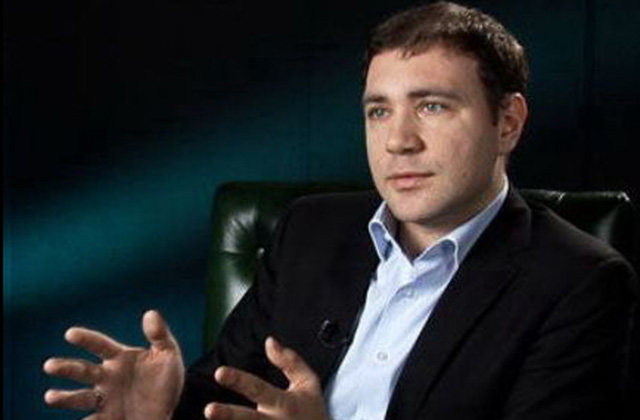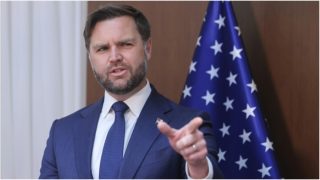“April 2016 unleashed Yerevan’s hands”

Interview with Denis Dvornikov, member of Russian Association of International Law, PhD in Legal Sciences.
Mr. Dvornikov, recently Russian and Azerbaijani FMs met in Moscow and launched negotiations. As Russian FM Lavrov said there are 2-3 topics crucial for the final package and are yet under discussion. He also said strengthening of trust mechanisms would have an important role on account of proposals submitted in Vienna and St. Petersburg meetings. Prior to Lavrov-Mammadyarov negotiations Nalbandian-Lavrov talks were also held in Moscow. What mechanisms does Moscow possess to develop the process? What’s your assessment to negotiation results?
I want to touch upon a very important circumstance, which Armenian media outlets don’t mention or almost miss. The point is that discussion of negotiations has turned into a tool for political manipulation. For most of Armenia’s population, including readers of your media outlet, myths have been developed, some stamps, generating sensitive reflections. For instance, notorious Lavrov’s plan, which doesn’t exist. Instead, there are the so-called Madrid Principles, I consider utopist, under which the Armenian side has signed, although there was possibility to show persistence. Very soon we’ll remember one year of the April War, as well as several lost opportunities. April 2016 unleashed Armenia’s hands. A good opportunity has been established to resume negotiations also by joining NKR representatives. That opportunity was missed. Is Moscow guilty again?
Of course, it’s a proper explanation. One may say nothing, not to solve personal issues, and in case of something different blame the Kremlin in case, when Russia demonstratively refuses certain actions and decisions in negotiations without other OCE MG Co-Chairs. For Moscow “Karabakh issue” is the main platform, where there is total consent with its Western partners. Currently it’s an essential resource, that allows finding a line of contact with the EU and the USA.
Returning to your question, let me state, that Moscow doesn’t have any new schemes. Realistic figures are functioning in Smolensk square, who realize complexity of the situation, threat of resumption of military operations. I consider currently negotiators have focused on the issue that April aggression wasn’t recorded once again, so that comparably peaceful process was maintained. Russia is deeply interested in it. Currently pre-election campaign has been launched in Armenia. And something hints me that someone would like to attribute many mistakes and difficulties to Russia to keep his/her own face before the electorate.
Escalation was recorded on Karabakh-Azerbaijan line of contact, experts don’t exclude the perspective of resumption of a wide-scale war. In your opinion, what current tension may lead to? What posture will Moscow assume this time when another escalation and attack is recorded by Azerbaijan?
I’m sure the position will be definite. All possible efforts will be exerted to suspend resumption of military operations. Those, who consider clashes are favorable to Russia, don’t realize the situation in which Russia appeared. Donbass, where peaceful process has also been complicated, Syria, where the perspectives are foggy, on the threshold of big elections—internal mobilization, economic hardship. Burning Transcaucasia will be much more, which will become a direct threat to the national security.
Recently Armenian authorities made rather noteworthy statements on the policy pursued by Azerbaijan. First, Defense Minister Vigen Sargsyan stated on probability of using “Iskanders” against Azerbaijan, and Armenia’s president Serzh Sargsyan stated at the meeting with diplomats that Armenia won’t stop for a second to use all the opportunities available in our arsenal to provide security of the people of Artsakh. In his turn, FM Edward Nalbandian said by the end of the year one of the countries will recognize Artsakh’s independence. How will this rhetoric be reflected in Azerbaijan’s behavior in the line of contact?
Use of “Iskander” was a serious warning to Baku’s incumbent regime. It served one purpose—prevent new operations toward wide-scale aggression. Unfortunately, the very Azerbaijan pushes for such a statement. The statement on possible recognition of Artsakh is intriguing. However, it again diverts us from the essence of the issue regarding what Armenia has done to return NKR to the negotiation table.
It’s much more important than recognition of Artsakh by some mystic country. As for operations by Azerbaijan, they are rather predictable. Every event, which once again proves that Artsakh is a productive and complete state, stirs aggression. It’s necessary to show on the site that the conflict isn’t resolved. And NKR Defense Army showed its readiness to such “traditional” attacks.
Official visit of Armenia’s president Serzh Saregsyan to Russia is being planned. Which are actual issues to be covered in Moscow?
It’s necessary to see the program of the visit. Relations of Moscow and Yerevan are rather open not to seek some mystic questions and topics for discussion. I consider issues related to economic cooperation, security, joint projects will be touched upon. This is plenary, working visit. Naturally, it’ll be difficult to bypass possible escalations on the border of Artsakh. I’d call on not to go deep into conspiracy.
Sargsyan’s Moscow visit was preceded by the visit to Brussels, during which he had rather prominent meetings with EU leadership, NATO Secretary General. During the visit it was also stated that Armenia and the EU ended talks around the framework agreement, signing of which is anticipated after the upcoming parliamentary elections, if an issue doesn’t emerge, like in 2013. Will Sargsyan’s forthcoming visit have significance for Armenia-EU framework agreement? What’s Moscow’s attitude toward it?
Of course, I can’t speak in the name of Russian authorities. However, I’m definitely sure that development of relations of Yerevan and Brussels is a neutral event for Moscow, mostly good news, that Armenia is confirming the status of trustworthy platform of negotiations between its Western partners and Russia. I’m also sure, that Armenians are a global nation, that harmonic relations with the USA and the EU are a crucial component in Armenia’s national policy.
I can firmly state that there is no jealousy. Armenia and Russia have their wide agenda, which requires much work. Thus, appointment of Vardan Tonoyan as Armenia’s new Ambassador to Russia inspires optimism. He is from new generation, who realizes the role of media outlets and literal information policy, who is used to work by showing results. I hope he’ll these qualities show in his new position as well.
By Araks Martirosyan

























